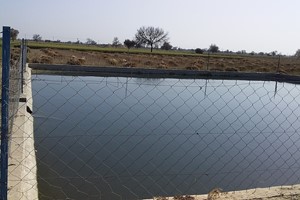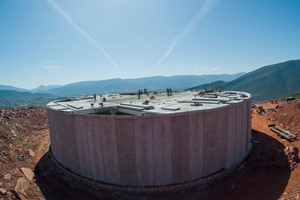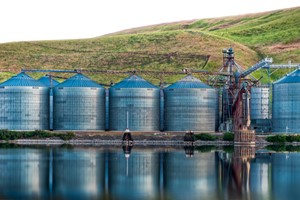The government has established a new fund aimed at supporting farmers in addressing water demand and availability issues in water-stressed agricultural regions over the course of the next 25 years. This fund, which will facilitate approximately 20 studies, seeks to encourage collaborative efforts among farmers to mitigate the impacts of drought and enhance food security.
Allocated funds will be utilized by farmer groups to explore various water management techniques within their respective areas. The government has outlined potential project avenues, including the establishment of multi-farm reservoirs, implementation of treated wastewater recycling systems, and the development of water trading and sharing schemes.
Eligibility for funding extends to groups comprising two or more neighboring farms, with applications due by 11:59 pm on June 16th. The government anticipates that this financial support will foster initiatives building upon the successes of existing projects, such as the Felixstowe Hydrocycle and Lincoln Water Transfer endeavors.
Felixstowe Hydrocycle represents a collaborative initiative across multiple farms, redirecting over 0.5 million tonnes of surplus land drainage water annually towards agricultural irrigation across six farms. Meanwhile, Lincoln Water Transfer is a consortium of 19 farms operating under a single abstraction license, utilizing a pooled system for water allocation from Fossdyke Navigation to irrigate 4,600 hectares of land, thereby enhancing flexibility in land and water utilization.
In its statement, the government indicated that the Environment Agency will leverage the fund to collaborate with farmers, landowners, and water abstractor groups in safeguarding the future viability of the agricultural sector while addressing regional water resource challenges.
This newly established fund supplements existing water management grants aimed at assisting farmers in optimizing water resource utilization. Additionally, the government has set forth ambitious targets for water companies, mandating a 50% reduction in leakage from 2017/18 levels by 2050.
Philip Duffy, Chief Executive of the Environment Agency, emphasized the imperative of collective action by farmers in adapting to climate change, meeting increased water demands, and preserving environmental integrity. Water Minister Robbie Moore echoed this sentiment, highlighting the importance of efficient water management practices in bolstering food production and enhancing farm resilience nationwide.
The announcement of the new funding has been met with approval from farming communities. NFU Vice President Rachel Hallos underscored the significance of secure water access for agricultural operations, particularly in light of climate variability. She welcomed the government's commitment to supporting water resource planning for vulnerable farming sectors and emphasized the importance of equitable access to sustainable water supplies.
Martin Lines, CEO of the Nature Friendly Farming Network (NFFN), echoed these sentiments, emphasizing the necessity for farmers to adapt to changing weather patterns by implementing effective water storage solutions. He stressed that adequate water availability is essential for maintaining farm viability and ensuring continued food production and security.
The government's initiative to provide funding for collaborative water management projects underscores its commitment to addressing water scarcity challenges in the agricultural sector, fostering resilience, and enhancing food security in the face of a changing climate.
By Tom Pashby














